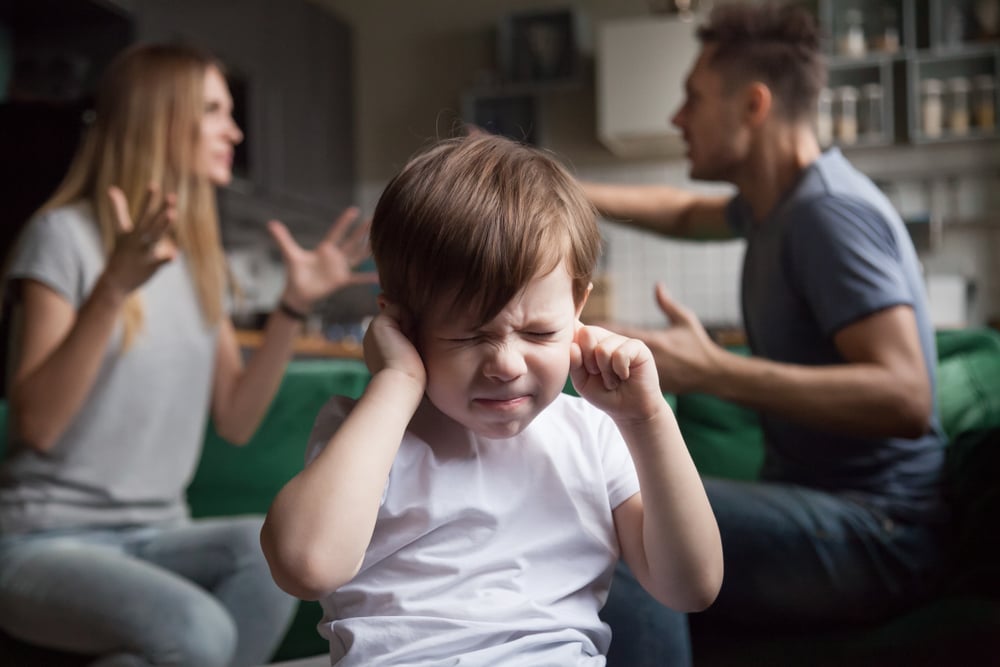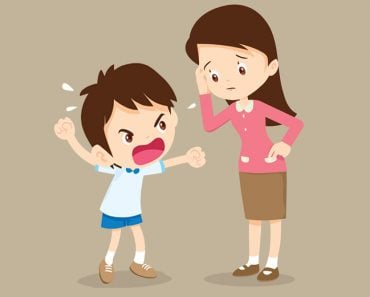Table of Contents (click to expand)
The opposing arguments on this subject fall into two broad categories: those suggesting that aggression is learned through social factors, and those suggesting that aggressive behavior is innate.
Children’s exposure to video games has seen huge growth in recent decades. In light of the ever-increasing popularity of video games, the concerns around their possible adverse effects on the minds of children have also been amplified.
Parents and educators have raised questions on the behavioral impact of video games, especially those that involve violence. The controversy around the link between violent video games and aggressive behavior has further heated up in the aftermath of traumatic public events, such as terrorist attacks and mass shootings.
How much does playing violent video games really affect a gamer’s psyche and behavior? Is it really capable of making a person more aggressive?
This topic has been highly debated among psychologists, with opposing arguments falling into two broad categories: those suggesting that aggression is learned through social and situational factors, and those suggesting that aggressive behavior is mostly genetic. These two schools of thought can be explained by the General Aggression Model and the Catalyst Model respectively.
Recommended Video for you:
General Aggression Model
The General Aggression Model (GAM), formulated by Bushman and Anderson in 2002, theoretically considers the role of social and situational variables in aggression. It draws from the following cognitive theories to study the effect of violent media on our minds:
1. Social Learning Theory – According to social learning theory, people learn social behavior through their own experiences and by observing the behaviors of others, and by analyzing the consequences of these actions.
This theory suggests that violent behavior can also be learned in a similar manner, for example, by observing the behavior of characters in a video game. Therefore, kids who play violent video games have a higher chance of developing aggressive behavior.
2. Script Theory – Huesmann (1986, 1998) proposed the script theory, which can be seen as a more detailed account of the social learning theory described above. Script theory states that kids learn scripts based on what they see, and later use these scripts as a guide for behavior when they are confronted with similar situations. (Source)
When children play violent video games, they observe that violence and learn aggressive scripts. When they are subsequently faced with a real social situation, they select the script that best fits the situation and assume the role in the selected script. Since the retrieved script serves as a guide for responding to situations in real life, the children respond violently, akin to their responses to the situations in the video games.
Repeatedly playing these games exposes kids to violent stimuli over and over again, which makes the script well rehearsed, and thus easier to retrieve. Violence becomes generalized in their minds, changing their social expectations and intentions, thereby further increasing the probability of them reacting aggressively in real life.
3. Excitation Transfer Theory – Physiological arousal related to any emotion takes some time to fade. When two arousing events occur one after the other, or within a short period of time, the emotions from one event may rub off on the subsequent event.
The residual arousal from the first event may be misattributed to the subsequent event, thereby causing our response to the latter to be heightened.
For example, a study indicated that people at an amusement park found other people more attractive after a roller-coaster ride, as opposed to before it.

This explains why playing violent video games may make people more aggressive in the short term. The aggression from playing these games lingers for a while, which influences a gamer’s responses to immediate situations (Source).
4. Social Interaction Theory – According to this theory, people behave aggressively towards someone in order to change the target’s behavior in a manner that is favorable to them. In other words, people often harm (or threaten to harm someone) in order to force them to do something they want, or to stop them from doing something that upsets them.
In addition to getting something they want, people also use aggressive behavior to punish others, so as to discourage them from doing a perceived wrong, or in an attempt to demand justice for a wrong that has been done.
5. Hostile Expectation Bias – Very often, the way in which we expect others to behave dictates our behavior with them. Hostile expectation bias is when people expect others to behave in an aggressive manner, and therefore themselves behave aggressively. People with a hostile expectation bias see the world with their ‘blood-red tinted glasses’, through which the world often looks like a dangerous place.
For example, if Lucas, who has high levels of this bias, bumps into another person on the street, he might think, “This person will assume that I bumped into him on purpose and will react aggressively”. Lucas, expecting the other person to attack him, will himself react aggressively instead.
A study found that playing violent video games causes people to expect others to behave aggressively by increasing their hostile expectation bias (Source).

Thus, the GAM proposes that people who are exposed to violent media will behave aggressively, irrespective of individual differences in personality, family background or genetics. Thus, the relationship between playing violent video games and aggressive behavior can theoretically be observed in every person.
In essence, it takes the tabula rasa (Latin for ‘clean slate’) approach, which posits that we’re all born with a blank slate of a mind and learn things only through experience and perception.
Catalyst Model
The catalyst model, on the other hand, suggests that a person’s aggressive behavior is innate and is therefore a result of his genetic predisposition. This biological risk is aggravated in the presence of family violence and negative peer interactions.
Circumstances in the environment, however, merely act as catalysts to the already existing aggressive temperament of a person, causing him or her to act violently.
Thus, the Catalyst Model suggests that the violence depicted in video games or other media cannot, by itself, be the cause for aggression in people, but can only be a catalyst. A person who possesses risk factors for aggression may be tempted to choose aggression as a valid response in certain situations.
However, in the absence of these risk factors, this model considers the influence of media on aggression as insignificant.
Therefore, although an individual who is genetically prone to aggression may act out in a manner similar to what he has seen in the game, the desire to act aggressively is not in itself a result of playing such video games.

Does Playing Violent Video Games Make One Aggressive?
Several studies have tried to answer this question by examining the effects of playing violent video games on the mind and body.
A study that used a sample of adolescent Korean students agrees with the GAM in suggesting that there is a direct relation between playing violent video games and aggressive behavior. It found that playing such games reduces empathy and behavioral self-control, and hence prosocial behavior in adolescents who play these games.
Another study by Chambers and Ascione (1987) conducted on third to eighth graders also found that playing violent games led to a decrease in their prosocial behavior. It was observed that the amount of money the kids gave as a donation after playing a violent video game was less than what they gave after playing a prosocial video game (Source).
Another important concept in the study of aggression is that of ‘normative beliefs’, which assesses the acceptability of aggression by an individual. When a person has high normative beliefs about aggression, he is more likely to behave aggressively.
A recent study concluded that exposure to video game violence increases people’s normative beliefs about aggression, thus making violence “normal” in their minds. Moreover, it makes them emotionally indifferent towards the horrific effects of violence. These findings are also supported by many other older studies in this area.
On the other hand, some researchers argue that video games actually have beneficial effects. Catharsis theory suggests that playing violent video games leads to a decrease in aggression, as these games help people vent out their aggressive desires. It helps teens overcome their feelings of lack of control and allow them to manage anger more effectively—and less destructively.
Another study aimed to find physiological differences between people who played violent games and those who played nonviolent games. Lynch (1994), who examined the heart rates and blood pressures of both such groups of adolescent males, expected to find greater cardiovascular responses from the former group. However, he found that there were no differences between the results of the two groups (Source).
According to James Paul Gee, a professor at the University of Wisconsin at Madison, the argument that violent video games cause aggression holds no merit. He believes that video games would have negative effects if kids see only one narrow world view shown by only one game. Instead, being in and experiencing many different worlds by playing a variety of games brings about genuine intellectual growth.
Karen Sternheimer, who has carried out extensive research on issues related to popular culture and youth, feels that a strong link between violent video games and aggression cannot be established since too many factors are at work. Therefore, she believes that we need to look beyond the games people play and address the other reasons why they behave violently (Source).
A large chunk of video games on the market contain mature or violent content in them. Video games are not only enjoyed by children and adolescents, but also by adults. A survey conducted by the Entertainment Software Association (ESA) found that the average age of American gamers is 33!
However, researchers are inclined to think that children are more easily affected by violent content than adults, and hence, are at a heightened risk of abnormal development and behavior. The American Medical Association (AMA) has also raised concerns about the improper rating of video games (Source).
All in all, there is no conclusive scientific evidence to prove that playing violent games prompts violent behavior; so the jury is still out on that issue.
However, it’s strongly advised for parents to keep an eye on their kids’ gaming activity and encourage healthy family and peer interactions.
References (click to expand)
- Shao, R., & Wang, Y. (2019, February 21). The Relation of Violent Video Games to Adolescent Aggression: An Examination of Moderated Mediation Effect. Frontiers in Psychology. Frontiers Media SA.
- Griffiths, M. (1999, June). Violent video games and aggression. Aggression and Violent Behavior. Elsevier BV.
- Christopher J. Ferguson, Stephanie M. Rueda, Amanda M. Cruz, Diana E. Ferguson, Stacey Fritz, Shawn M. Smith - Violent Video Games And Aggression Causal Relationship Or Byproduct Of Family Violence And Intrinsic Violence Motivation? - CiteSeerX
- (2014) The Effect of Aggressive and Prosocial Video Games on .... Trinity College
- https://rc.library.uta.edu/uta-ir/bitstream/handle/10106/11536/Prokarym_uta_2502M_11974.pdf?sequence=1&isAllowed=y
- Videogame Violence and its Impact on Users - www.appstate.edu:80












